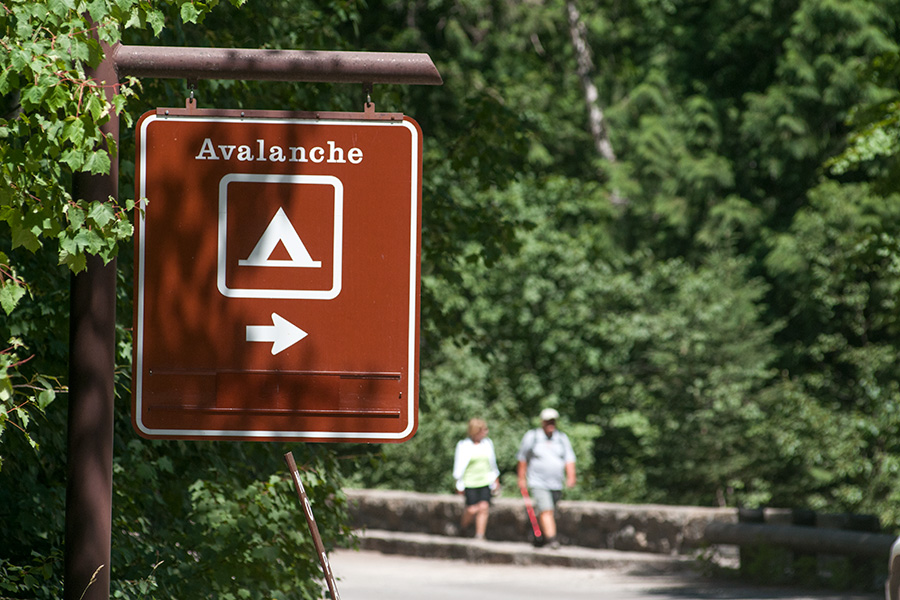U.S. Interior Secretary Ryan Zinke has invited private entities to play a larger role in managing National Park Service campsites, a move the Whitefish native says could help relieve a sizable burden from a federal agency chafing under the constraints of a lean budget.
The former Montana congressman’s suggestion that more park functions should be outsourced to private companies has rankled conservation groups who worry the shift could diminish public access and render park rangers’ jobs obsolete, while the recreation industry says the move will improve the overall visitor experience.
Private companies already run lodging and concessions throughout the national park system, including in Glacier National Park, where Xanterra Parks and Resorts — the largest government contractor for hotel and concession services in national parks — operates lodging, retail, transportation, and food and drink within the park.
Derrick Crandall, counselor for the National Parks Hospitality Association and president of the American Recreation Coalition, said private companies assuming more responsibility could help address maintenance deficiencies in national park campgrounds.
“Just as we want world-class lodges, we want world-class campgrounds,” he said. “In reality what we have is some of the world’s best campsites in terms of where they are geographically and some of the world’s worst campsites in terms of how they are operated. This could be such an opportunity.”
Opponents of the idea worry that the shift is in keeping with the Trump administration’s push to turn public resources over to private special interests and increase the privatization of public services, driving up costs and reducing access.
Chris Saeger, executive director of the Western Values Project, said Zinke’s priority should be to champion a larger budget to address the maintenance backlog rather than delegating core park service responsibilities to outside providers.
He also said it could open the door to a host of other private business exploits that are out of sync with the National Park Service’s mission.
“Secretary Zinke is throwing hardworking park rangers under the bus, while advocating for a budget that cuts essential funding and allows special interests to drill and mine public lands with virtually no accountability,” Saeger said. “Not only has Zinke forgotten where he comes from, he’s making it clear to people across the West that he could care less about their access to public land.”
Under Trump’s budget plan, the National Park Service would take a 13 percent cut in the fiscal year beginning Oct. 1, compared with the present year, according to the National Parks Conservation Association. The cuts include a $30 million spending gap in deferred maintenance, which already has a backlog of $11.33 billion.
The Trump budget also proposes to cut staff by 6 percent, equating to more than 1,200 jobs, putting staffing 18 percent, or 4,000 jobs, below the agency’s 2010 budget. Those job losses equate to full-time equivalent positions, and in many national parks, such as Glacier, most workers are seasonal or part-time, so a loss of 4,000 full-time equivalents could mean a cut of 8,000 or more summertime workers throughout the system.
John Garder, director of budget and appropriations for the National Parks Conservation Association, said parks face a surfeit of challenges that require more funding, not less, particularly as visitation continues to swell disproportionately to the amount of funding parks receive.
Glacier broke another attendance record in 2016 with 2,946,681 visitors.
Speaking to reporters on a conference call last month, Zinke defended the budget, noting that privatization efforts for camping could help relieve the maintenance backlog nationwide.
“We have not been a good partner with industry,” Zinke said. “We have not been a partner you can invest in.”
Earlier this month, while addressing the Recreation Vehicle Industry Association, Zinke again suggested that privatization could improve the state of national parks, and public-private partnerships will help define the path forward.
“As the secretary, I don’t want to be in the business of running campgrounds. My folks will never be as good as you are,” he said. “We are going to have more public-private partnerships soon. I think that’s where the industry should be going.”
Crandall said placing campsite management under the auspices of the current concessionaire wouldn’t present a great deal of challenges, and noted that national forest campgrounds already use the model. Flathead National Forest has 31 developed campgrounds, 12 of which are under management by a concessionaire.
Crandall also suggested that such a change could provide for a more enjoyable visitor experience by offering extended services and amenities, such as Wi-Fi, paved roads, more pull-through sites for recreational vehicles, and even food trucks.
He noted that national park campgrounds have seen little growth in the past four decades, and many sites are inappropriate for today’s camper market, which includes an increase in recreational vehicle use.
“It’s such a win-win. It’s a no brainer,” Crandall said. “I think we have to have a dialogue. We don’t want to make anybody feel bad, including the park service employees. We just want to jointly celebrate the notion that as partners we could do a better job of hosting our visitors.”
